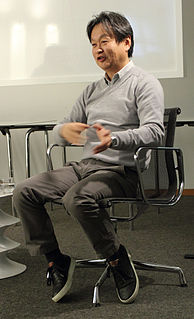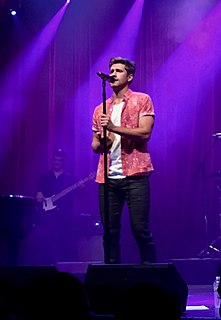A Quote by Ron Padgett
Part of the pleasure of giving a reading comes from the rapport between the audience and the poet. I don't want to get mystical here, but there's an energy flow that begins with the poet, and the energy goes out to the audience, and they're energized, and then they return that energy to the poet. As someone standing up there alone, facing these people, I can feel that rapport (or its absence).
Related Quotes
Through performance, I found the possibility of establishing a dialogue with the audience through an exchange of energy, which tended to transform the energy itself. I could not produce a single work without the presence of the audience, because the audience gave me the energy to be able, through a specific action, to assimilate it and return it, to create a genuine field of energy.
One of the appeals of William Carlos Williams to me is that he was many different kinds of poet. He tried out many different forms in his own way of, more or less, formlessness. He was also a poet who could be - he was a love poet, he was a poet of the natural order and he was also a political poet.
The poet or the revolutionary is there to articulate the necessity, but until the people themselves apprehend it, nothing can happen ... Perhaps it can't be done without the poet, but it certainly can't be done without the people. The poet and the people get on generally very badly, and yet they need each other. The poet knows it sooner than the people do. The people usually know it after the poet is dead; but that's all right. The point is to get your work done, and your work is to change the world.
When the poet's sentiments are overly visible, the audience may become uncomfortable. Japanese ritual is the opposite. By writing simply and only about what is there, the audience is drawn into the poet's world. Their imagination is stimulated, and a silent connection is established. I believe this is where the most important aspect of the Japanese sense of beauty lies.
The one thing that I love about the live audience is the energy level. Like, from the minute of cast introductions, it's just constant energy being traded back and forth. When you do something funny, the audience laughs; when you're being serious, you can, like, feel the tension going through the audience.
Another trouble with poetry - and I'm gonna stop the list at two - is the presence of presumptuousness in poetry, the sense you get in a poem that the poet takes for granted an interest on the reader's part in the poet's autobiographical life, in the poet's memories, problems, difficulties and even minor perceptions.







































